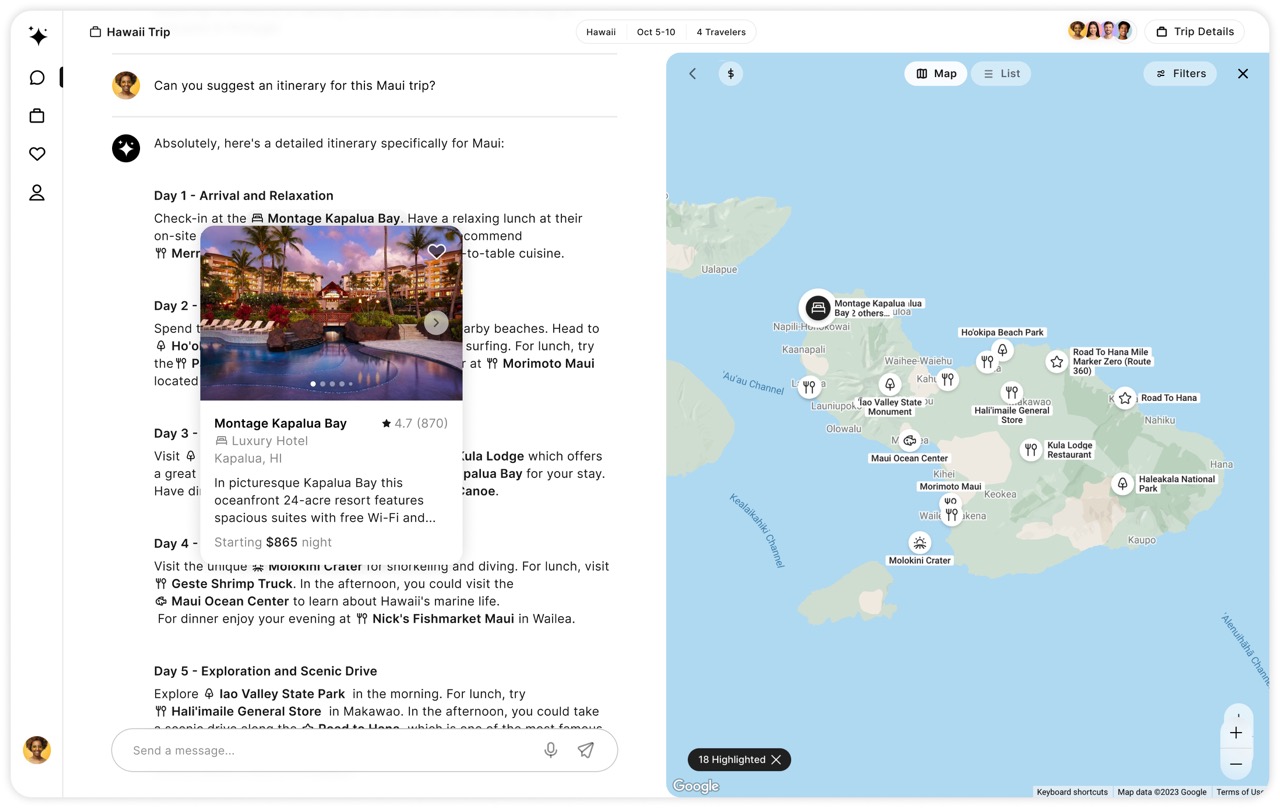Mindtrip wants to become your AI travel agent
3 min read
Once upon a time, we used to use travel agents to book our flights, book our hotels and maybe even make recommendations about things to do and places to eat while you were away. But then along came the internet and the ability to book your own flights, and Airbnb or Vrbo for your accommodation, and then between Instagram and TikTok what to do and where to eat was covered. Travel all became a lot more self-service.
But a group of 12 experienced founders recognized that there was a gap in the market: a way of ensuring that trip planning and booking happened all in one place, with a sense of purpose and advice, but without a human travel agent. Instead, it was AI in the driving seat. It’s called Mindtrip and it has just raised $7 million in seed funding from Costanoa Ventures to help carve out its own chunk of the 10% of the economy that’s spent on travel and hospitality.
Mindtrip’s CEO is Andy Moss, a serial entrepreneur who built and sold Roadster, FabKids, PopSugar and ShopStyle. Others alongside him include his co-founder at Roadster, Trey Matteson, and Garrick Toubassi, who previously led the Gmail engineering team at Google, where he was an early implementer of AI and applying large language models at scale.
Between them they recognized not just the popularity of travel as a popular topic on ChatGPT, but that it could go so much further than that. Natural language is the perfect way to bring together travel organization: People can ask questions and receive answers and suggestions while a more sophisticated AI mechanism can provide imagery, maps and availability and booking information.
“One of my other co-founders said: ‘Andy, what I really miss is actually having a travel agent. Twenty years ago, there was somebody that actually helped us plan a trip,’ said Moss, when talking to TechCrunch, “And then, this kind of light bulb just went on.”
Moss showed me an MVP of the software, which looked astonishingly good. By coincidence, the company’s so-far limited dataset for testing purposes includes the Hawaiian islands. In front of my eyes, the AI planned out a trip almost exactly like one we did with my family for my 40th birthday — except in seconds, rather than hours of research, and making it extremely easy to book, schedule and plan the whole thing. In a nutshell, it’s one of the best demos of AI I’ve seen to date, with an interface that makes a lot more sense than a lot of the text-forward interfaces we have seen so far.

A rich travel itinerary generated from just a few chat prompts. Image Credits: Mindtrip
Mindtrip will go into public beta toward the end of 2023. Then, you will be able to build and organize trips with it by asking it questions to which it can add imagery, geographical, time and availability information pertinent to where you’re thinking of going.
It’s aimed at meeting the needs of travelers who are inspired by TikTok and Instagram, those who have everything planned out to the most minute detail, and anyone who loves an adventure but likes it planned.
“The sort of concept behind Mindtrip is how do you use ChatGPT natural language,” said Moss, “But with a built-in killer consumer-facing interface that really ties in maps and data cards and flight schedules and takes it all the way through the booking.”
That’s exactly what Mindtrip is aiming to offer: an AI assistant that can provide you with travel data that includes maps with suggested places to visit, travel availability, the ability to book restaurants and activities, all managed within a personalized itinerary or schedule.



